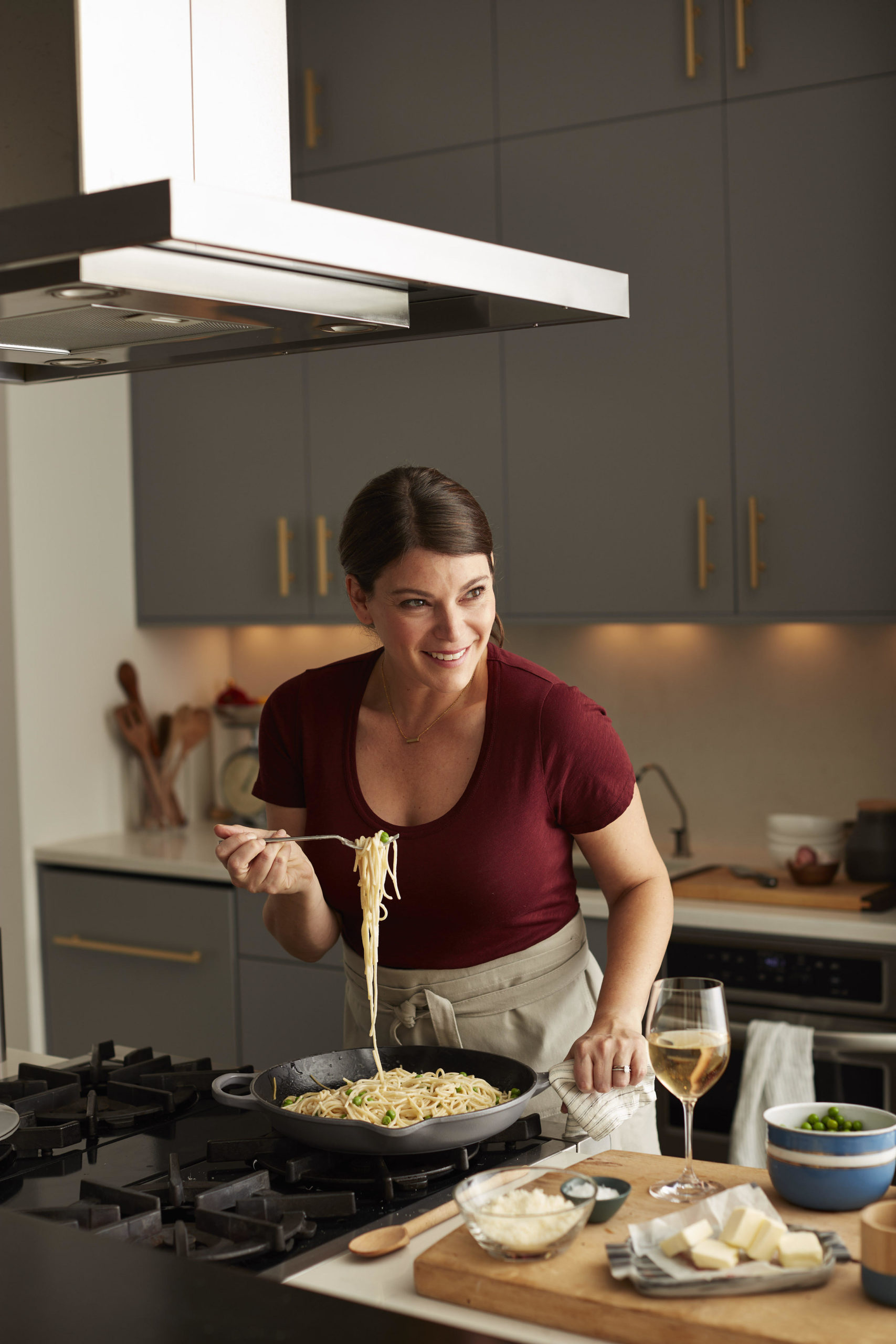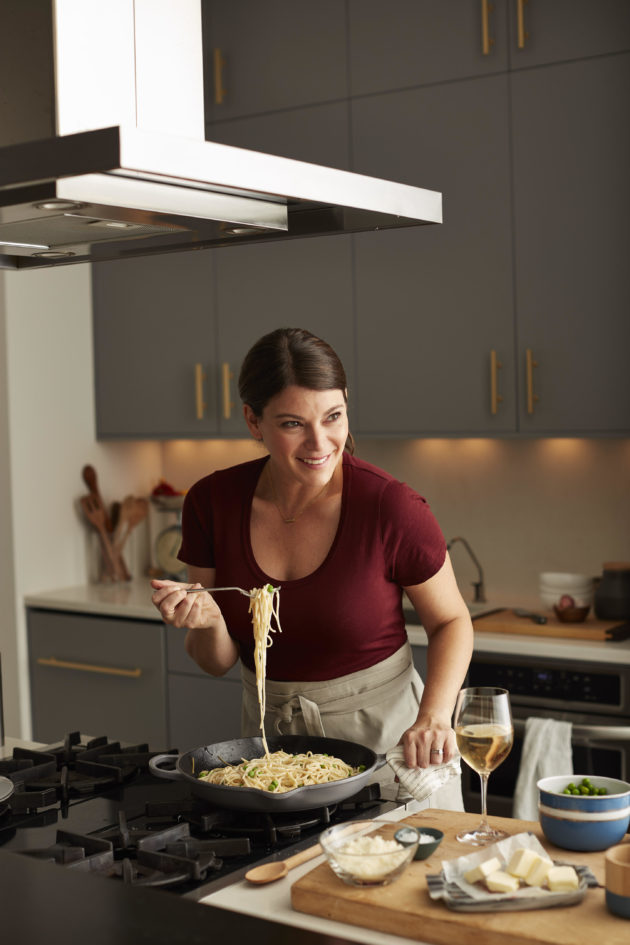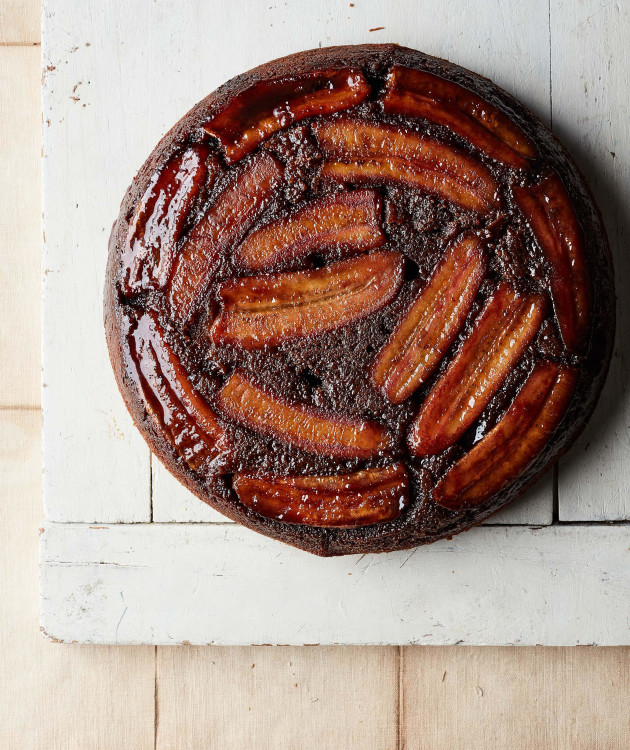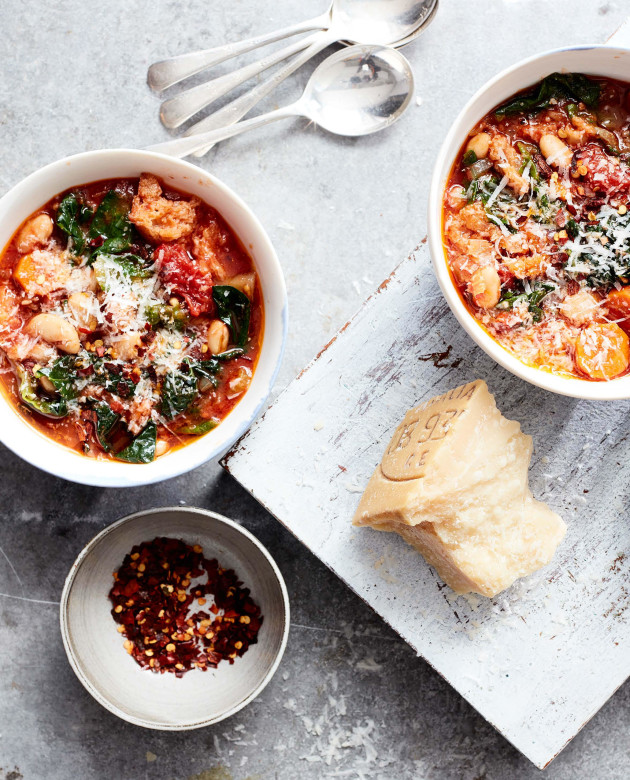
Top Chef Judge Talks About #MeToo and Latke Reubens with Lilith
HRN: Speaking of family food memories, is your daughter a little foodie in the making?
GS: She’s a great eater, in general. She’s still a toddler, though, [so] she doesn’t eat foie gras and caviar every day, that’s not realistic. She likes mac ’n cheese and hamburgers just like the next kid, but she doesn’t hesitate to try new food, which I think is the biggest triumph. Taste it once, that’s the rule in our house. And every day it changes. One day her favorite food is olives, the next day it’s broccoli, and the next she’s throwing them against the wall saying “no,” so we just keep trying. We find the more we surround ourselves with healthy, tasty food the more she likes to eat it.
 HRN: Have there been any challenges in balancing motherhood and your career, being a TV personality?
HRN: Have there been any challenges in balancing motherhood and your career, being a TV personality?
GS: Because of our work schedules it’s hard to be consistently home for a family dinner, so we make a big point of having breakfast together every day. Breakfast is the one meal we know we can all be home for, so we make it sort of an elaborate thing.
I don’t have a nine-to-five job, I haven’t in a decade. We shoot Top Chef two months out of the year, and on top of that I take on as many or as few projects as I can based on my own needs. Starting Bumble Pie Productions allowed me to have more control over my schedule and also to create content that I really believe in. Having that power over my life allows me to be in an unconventional job with unconventional hours but still be a mom and make decisions that are best for my family. I accept the projects I want to accept. It’s very liberating. The only problem is it’s hard to say no.
HRN: Can you go into more detail about Bumble Pie Productions and what the impetus was for creating it?
GS: My business partner and I are both women, we’re moms. We wanted to create television that supports women. There are still very few women who are on camera in starring roles on food television, yet there are so many great young voices doing interesting things out there. We wanted to promote them. We’re really proud of our first series, Star Plates.

HRN: Why do you think women are still a minority in the kitchen and elsewhere in the food world?
GS: Women face different obstacles both internally in the industry and externally in the biology of who we are and how our culture operates. It’s the same reason there are fewer women partners in law firms, fewer women in almost everything. Why? Because we have the babies. It’s not that black and white, but that’s the root of it. That then complicates so many other layers of how our culture structures itself.
Also, being a chef is a really physical job. For hundreds of years, kitchen jobs were really menial unless you were head chef. Until recently, many of my veteran chef friends will tell you, they originally became cooks because they weren’t heading for college, they weren’t going to be traditional desk-job guys, they were getting into trouble and the kitchen was a place where they could get out that energy. The kitchen was a rough and tumble place. It’s only in the last few decades that it’s been given the respect it deserves and been regarded as a coveted career option.

HRN: Anthony Bourdain said there’s an “institutionalized Meathead Culture in the restaurant business.” As even celebrity chefs have been swept up in the #MeToo movement, can you comment as to whether this has been your experience?
GS: Yes and no. Yes, the restaurant kitchen culture historically has that feeling to it, but I won’t tell you that I was sexually harassed because I don’t believe I was. I’m not negating the experiences of a lot of women. I think it’s very true and unfortunate, and I’m really glad that women are speaking out about their experiences. I want to support those women as much as possible.
Personally, I feel very lucky. I’m not saying that everyone was nice to me—I worked in very difficult kitchens, and I felt at a disadvantage because I was the only woman, and I didn’t have the physical strength that a lot of the guys had. I was made to feel weaker than them. But I was never put in a position where I was uncomfortable in the kitchen. And, at Vong, the second kitchen I worked in, I was the only woman, but I loved the team. They were good to me. They treated me like one of their own.
But every woman is different and feels differently about their experiences. I’m a pretty tough girl, I had two big brothers that taught me to defend myself and have confidence and to be proud of who I am and not take crap from anyone. But not all women have that confidence and that capability, especially when they’re nervous in their jobs and trying to please their bosses. It’s very easy to be taken advantage of by people in positions of power.
HRN: What do you think needs to happen for the situation to improve?
GS: I think the only way is for male leaders to change how the culture of the kitchen works. That is going to take time. We’ve come a long way. Twenty years ago there were almost no women in kitchens. Now there are so many amazing women chefs cooking in America, but the numbers are still small because we started at a huge disadvantage. This isn’t an industry that can change overnight. It’s going to take generations. It’s only recently that restaurants have been anything but small businesses, so they don’t have the implemented HR structure necessary to handle all of this. The industry needs to catch up.
HRN: Do you recommend women who aspire to be in the food industry to strike out on their own, create their own production companies, restaurants, etc.?
GS: I think the great news is the food industry has expanded so much. It used to be you were a food critic or a chef. Now there are a thousand careers around the food space where you can carve your own path. That’s what I was able to do. But I only own my own business twenty years after paying my dues. I didn’t snap my fingers and end up on television. People look at chefs on Top Chef for example and think, “I want to be a chef,” and they think “I’ll go to culinary school and then I’ll be a chef” and it doesn’t work that way. It still takes a lot of hard work, it’s a process. I definitely think the world seems to be going toward the gig economy—being a freelancer, an independent contractor, as opposed to working for a big corporation. So I think there’s a lot of opportunity for entrepreneurship in the food industry. But first you have to learn about food, about your industry.
The views and opinions expressed in this article are the author’s own and do not necessarily reflect those of Lilith Magazine.



